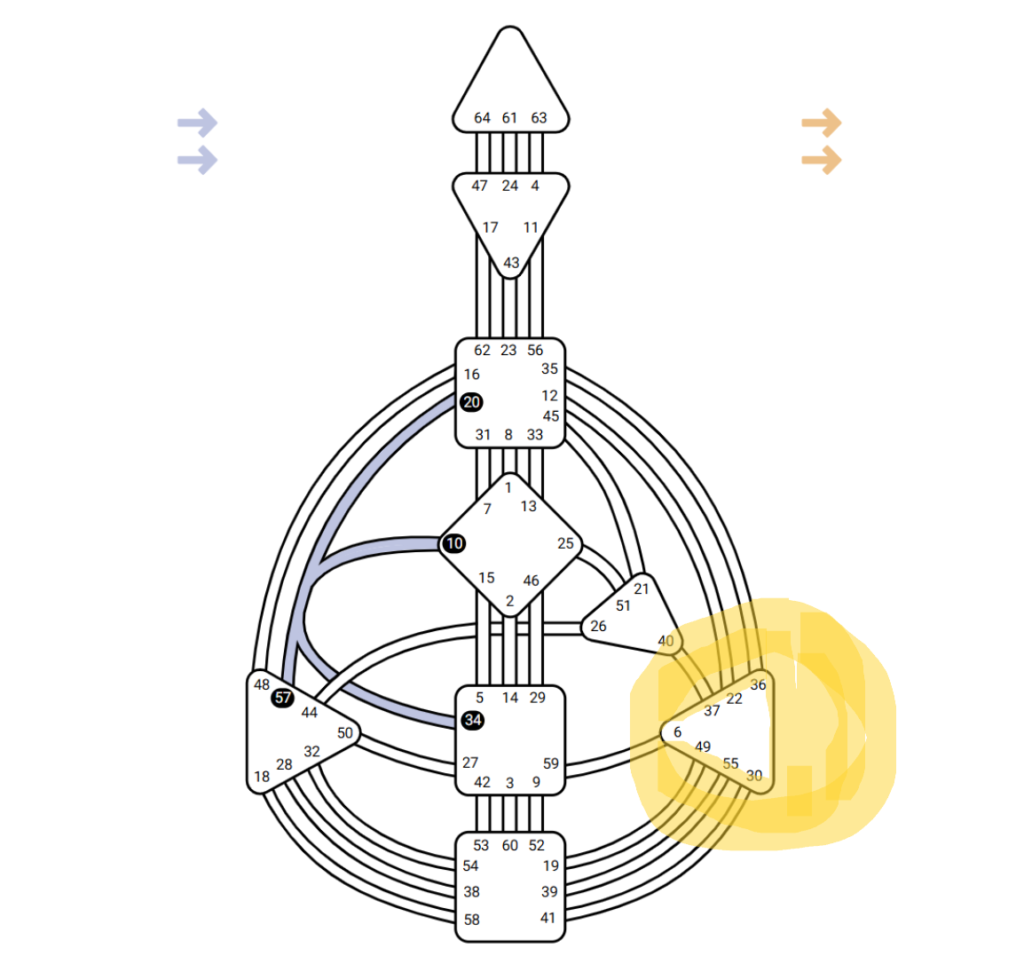Solar Plexus: Our Emotional Center in Human Design
The Solar Plexus is our Emotional Center. It governs our emotions and feelings. It is also one of the four motor centers responsible for our actions in the external world, particularly those driven by emotions.
If you’re unsure whether your Solar Plexus is defined or not, check your chart (on kodygenowe.pl). A defined center is marked in purple or red, while an undefined one is colorless.
Defined Emotional Center and the “Emotional Wave”
People with a defined Solar Plexus are highly sensitive and prone to experiencing intense emotions. They go through constant, deep emotional cycles, “rising and falling waves” that fluctuate from feelings of happiness and contentment to deep resignation, anger, and even rage.
For these individuals, the Emotional Center always acts as an inner authority. This means they tend to make important life decisions when under the influence of strong emotions, which often leads to problems. It’s crucial for them to understand that all significant life decisions should be made when the emotional “wave” has subsided. There is never “truth” in the heat of the moment or in spontaneous decisions. When facing an important decision, they should “sleep on it” and wait for the appropriate time to pass. This might be a day or even a week. This applies to all aspects of life, whether joyful or painful.
Undefined (Open) Emotional Center and “Procrastination of Action”
On the other hand, if the Solar Plexus is undefined—meaning it doesn’t connect to other centers—the individual tends to absorb and amplify the emotions of others, often feeling them as their own. This leads to mood swings and difficulties in distinguishing their own emotions from those of others. However, if these people are aware of their “openness” in this center, they can benefit from feeling the emotions of others without being overwhelmed by them. Instead, they can observe these feelings without getting lost in them.
People with an open Emotional Center must also understand that they often fail to recognize the difficult aspects of their life and have a tendency to procrastinate on necessary decisions and actions. They often avoid confronting problems, challenges, and difficult relationships. However, they should be aware that most challenges will not disappear on their own. Eventually, they will need to address them, and procrastination typically worsens the situation. It is better to deal with challenges rather than wait for things to spiral out of control.
The Solar Plexus in Anatomy: A Comparison
The Solar Plexus is a complex network of nerves located in the upper abdominal area, just behind the stomach. It is one of the largest and most important nerve clusters in the human body. While it contains far fewer neurons than the brain (from several million to a few hundred million neurons), the human brain has about 86 billion neurons.
Main functions of the Solar Plexus include:
- Control of the digestive system: It regulates the functions of the digestive tract, including intestinal peristalsis, secretion of digestive juices, and digestion itself.
- Regulation of internal organs: It controls the function of many internal organs such as the stomach, liver, pancreas, adrenal glands, and kidneys.
- Integration of emotional reactions: It connects to the limbic system, enabling the integration of emotional responses with physiological processes, such as reactions to stress.
- Impact on the cardiovascular system: It influences the heart’s activity and regulates blood pressure through its control over sympathetic and parasympathetic nerves.
In the future, conventional medicine may be better able to decode the physiological and biochemical responses occurring in our bodies in connection with the human emotional system. Currently, this mainly focuses on basic aspects of stress and pleasure. However, many believe that most health issues stem from psychosomatic factors. There are already numerous studies exploring this direction (such as Total Biology). We can hope that artificial intelligence will support such research.
It’s interesting to reflect on what the world would look like if people stopped acting based on strong emotions. How many fewer wars and conflicts would there be? How would human relationships change?
The upcoming 2027 era is expected to bring significant changes in how our Emotional Center functions. But that’s a topic for another post…https://soulguiding.org/blog/2027-the-beginning-of-a-new-era-in-human-history
